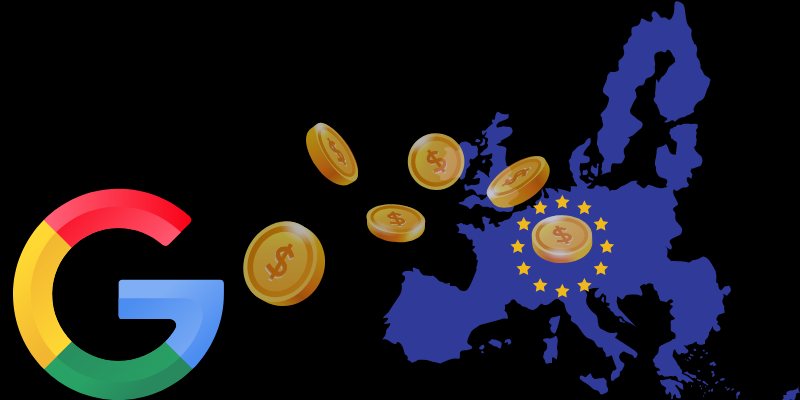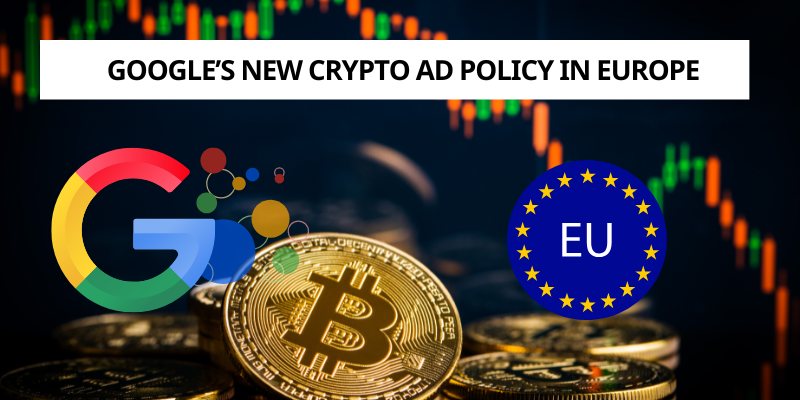In a move that is set to reshape the European crypto landscape, Google has announced that, starting April 23, 2025, all cryptocurrency exchanges and wallet providers wishing to advertise on its platforms in Europe must comply with the European Union’s Markets in Crypto-Assets (MiCA) regulation. This new policy, which also requires Google’s own certification and adherence to additional national laws, is being hailed as a significant step toward investor protection—but not without controversy.
The New Rules: What’s Changing?
Under the updated policy, any crypto-related business—whether an exchange, wallet provider, or other service—must:
- Hold a valid MiCA license or be registered as a Crypto Asset Service Provider (CASP) in accordance with EU law.
- Obtain Google certification confirming their regulatory status.
- Comply with additional national regulations that may apply in each EU member state.
- Respond to violations within a seven-day warning period, after which advertising privileges may be revoked.
For companies already operating in countries like France, Germany, or Finland under existing national licenses, Google will continue to recognize these credentials until the full MiCA transition is complete later in 2025.

The Positive: Investor Protection and Market Legitimacy
Proponents of the new policy argue that it will bring much-needed order to a market long plagued by scams, misleading promotions, and unregulated actors. By requiring MiCA compliance, Google is effectively filtering out projects that cannot meet the EU’s rigorous standards for transparency, capital adequacy, and consumer protection.
“MiCA is designed to harmonize crypto regulation across Europe, and Google’s move will help ensure that only legitimate, well-capitalized firms can reach European consumers,” says Dr. Helena Schmidt, a financial regulation expert at the European Institute of Digital Finance. “This should reduce the prevalence of fraudulent schemes and protect retail investors from the worst excesses of the market.”
The policy also aligns with broader trends in the tech industry, where major platforms are increasingly being held accountable for the content and advertisements they host. By proactively enforcing compliance, Google is positioning itself as a responsible gatekeeper in the digital asset space.
The Negative: Barriers for Startups and Market Concentration
However, the new rules are not without their critics. Many industry insiders warn that the high costs and administrative burdens associated with MiCA compliance could stifle innovation and entrench the dominance of established players.
MiCA’s capital requirements, which can range from €15,000 to €150,000 depending on the type of service, are a significant hurdle for smaller exchanges and startups. Add to this the costs of legal advice, compliance staff, and the need to navigate both EU-wide and country-specific regulations, and the barriers to entry become formidable.
“While the intention is to protect investors, the reality is that many promising startups simply won’t be able to afford the compliance costs,” says Luca Moretti, CEO of a Berlin-based crypto startup. “This could lead to a situation where only the largest, best-funded companies can advertise, reducing competition and innovation.”
There is also concern that the complexity of the regulatory landscape—especially with varying national transition periods and additional local requirements—could create confusion and enforcement gaps. Smaller firms may find it difficult to keep up with the shifting rules, while larger players with dedicated legal teams will have a clear advantage.

Google’s Motivation: Investor Protection or Legal Risk?
While Google has framed the policy as a step toward greater investor protection, some experts believe the primary motivation is risk mitigation. By ensuring that only licensed, compliant firms can advertise, Google reduces its own exposure to legal challenges and regulatory penalties.
“Google is acting out of self-preservation as much as public interest,” argues Mattan Erder, general counsel at blockchain project Orbs. “The company wants to avoid being held liable for facilitating scams or unlicensed activity, especially as regulators around the world step up their scrutiny of tech platforms.”
The Broader Impact: A New Era for Crypto Advertising
Google’s policy shift is likely to have ripple effects throughout the industry. Other major platforms, such as Meta and X (formerly Twitter), may soon follow suit, further raising the bar for crypto advertising in Europe and beyond.
For consumers, the hope is that these measures will lead to a safer, more transparent market. For the industry, however, the challenge will be to balance the need for investor protection with the imperative to foster innovation and maintain a level playing field.
Google’s decision to enforce MiCA compliance for crypto ads in Europe marks a turning point for the industry. While the move promises to enhance investor protection and bring greater legitimacy to the sector, it also risks entrenching the dominance of established players and raising barriers for smaller firms. As the new rules take effect, the crypto community will be watching closely to see whether the benefits of regulation can be achieved without stifling the very innovation that has defined the space.

